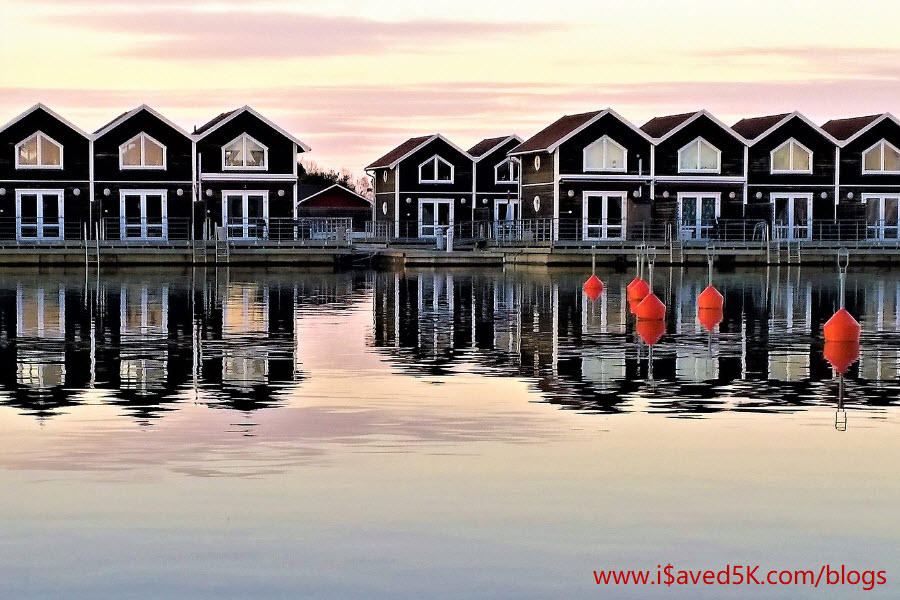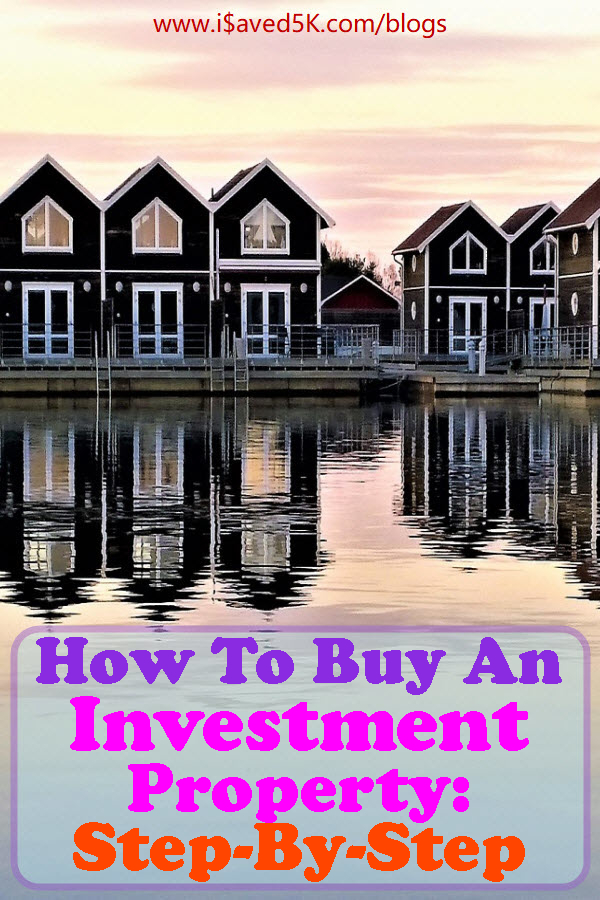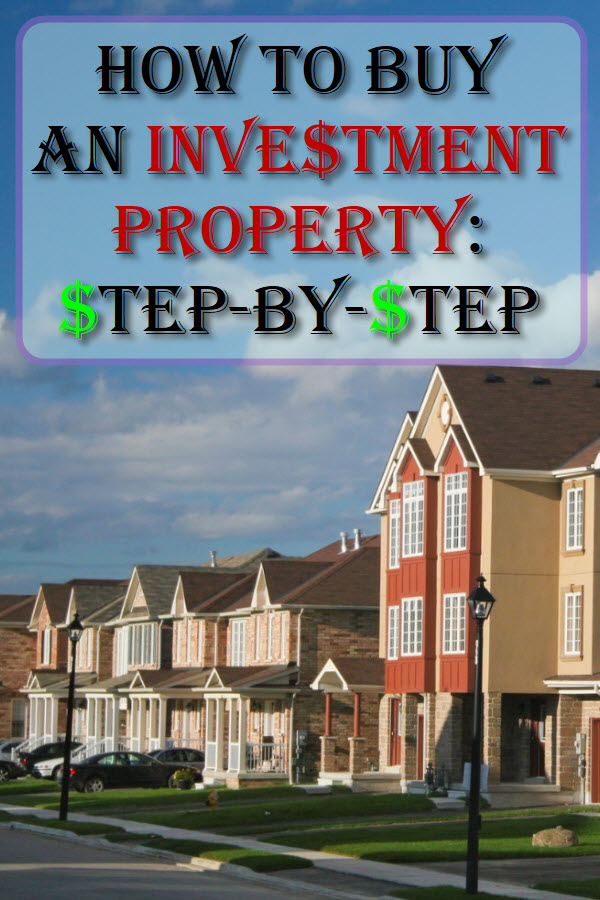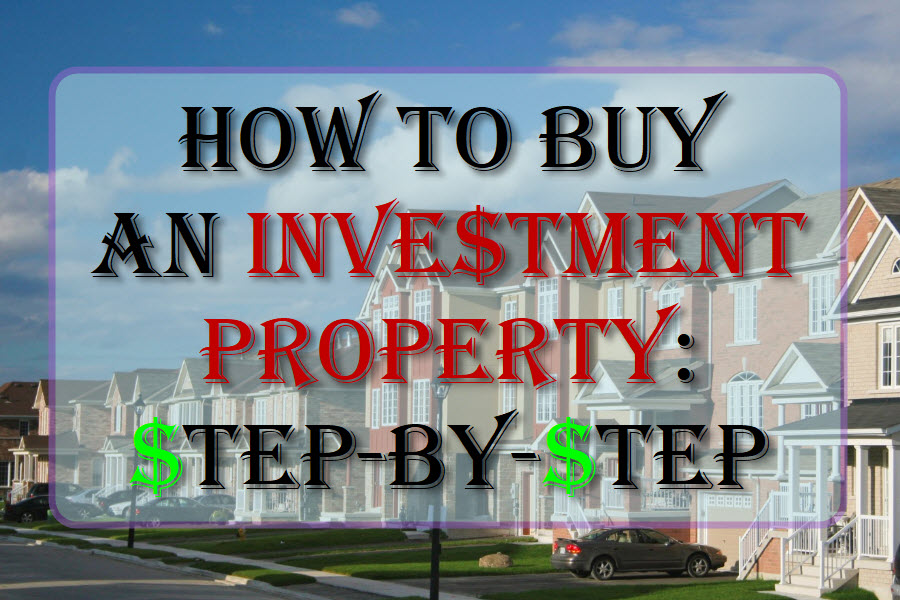
Every since I started to invest for myself, my goals were to diversify my investments and to increase my income streams. One of the ways to increase my income streams is to buy rental properties. So I’ll walk you through the whole process from wanting to buy a property to owning the property.
1) How much do I have to invest?
The first question that comes to my mind is, “How much money do I have to invest in an investment property?” This is one of the most important an obvious requirements that will determine the rest of the process. Whatever the number is, it’ll be at most 25% of the purchase price of your property. For example, if you have $100,000 to invest, then you should only buy a property that is $400,000 or less.
2) How much do I need to close my property?
To start, you’ll need to put a 20% down payment if your property is an investment property. You’ll need to have $$$ left over to cover land transfer tax, lawyer fee, insurance, three months of mortgage payments and renovation cost. So 5% to 10% of total value of the property is not outrageous. When I bought one of my rental properties in Toronto, I had to pay both the Toronto and Ontario land transfer taxes and took two months to complete major renovations to upgrade the property. The total cost of these two items amounts to about 10% (3% land transfer tax and 7% for renovation and two months of mortgage payment and bills) of the property’s value. For newer properties, you can get away with just doing minor touch-ups to rent your property out. Hence, that’s why I mentioned the 25% as the minimum requirement in point #1.
3) High-rise Or Low-rise?
There are benefits and drawbacks with owning both types of properties. For low-rise, you’ll have more work to do in terms of maintenance, since the owner of the house is responsible for shoveling the snow, mowing the lawn and take care of the building structure. However, the cost is totally within the owner’s control. For high-rise, outside maintenance activities are not required by the owner as the condo corporation will do all of that. The downside is, the condo owner needs to pay a monthly maintenance fee and has very little control of rising fees. So the choice depends on how comfortable you at managing the maintenance of the property. Do less maintenance = high-rise, do more maintenance (and save money) = low-rise
4) Location, Location, Location
We all like to own good properties forever, but we need to manage the liquidation risk. Sometimes we’d like to cash out and make the profit. Other times, we run into financial issues due to unforeseen reasons and need to sell to unlock our capital. Whatever the reason, having your property at a great location will ensure a few advantageous factors. First, a good location will allow you to rent out the property faster, which will limit your vacancy risk. Second, a good location will preserve the market value better and will have more potential for future capital gain. Third, good locations are in high demand, so when you need to sell fast, you’ll have a better chance of doing that and will lower your liquidation and financial loss risk.
5) Form your buying team
The main professional on your buying team will be a Realtor. However, it’s best that you contact other professionals such as a real estate lawyer, mortgage broker, contractor, insurance specialist, home inspector etc. to have every angle of the buying process covered. That way, you will be able to review contracts, get financing, renovation estimate, insurance cost and inspect the property in a timely manner. Having to form your team before hand will give you an advantage when you get into a bidding war (I don’t normally recommend getting in a bidding war, but it doesn’t hurt to be prepared.)
6) Shop around
Since it’s an investment property, you have to be confident that you can rent it out easily so that you’ll lower your vacancy risk. If you are not confident about the potential of the property, then move on. My view is that it’s better to lose an opportunity than to lose your own investment capital.
7) Maintenance proof your property
When you purchase the property, you should have had a home inspection done. Make sure that you (or the seller, which I preferred) fix all the major issues and take preventative measures to prevent future issues from occurring. If you do that, you’ll get a lot fewer service calls from your tenants in the future.
8) Make your property energy efficient
If you are paying partial or all the utilities, it’s best to make sure that your property is energy efficient. I upgraded all the light bulbs the energy efficient LED light bulbs in my rental property so that I save money on the utility bills and rarely have to change it as they last for about 10 years. Lower cost means high profit.
9) Know the Residential Tenancy Act
When you are the landlord, you must have knowledge of the important rules in this act. Rules such as rent increases, termination notices, tenant screening etc are vital to your rental business. By knowing this, you’ll mitigate your risk of major financial loss and sometimes, criminal prosecution.

If you like this post, do it to Pinterest or follow me on Pinterest
10) Beware of the professional tenants
These are the leeches of our society. They don’t want to pay you rent and live for free in your house and you want to avoid these tenants. Just read this Toronto Star article and you’ll know why I dread them so much as a landlord
11) Set up your process
If you set up a process to advertise your property (I only use kijiji and it’s sufficient for me), screen your tenant, manage your leases, rental payments and bills, you’ll spend less time to run your business. After year two, it’s just wash and rinse (take my word on that).
12) Enjoy the reward
When you work hard to build an income generating property, reward yourself at least once a year. There is nothing wrong with a little celebration. This will motivate you to find more opportunities to make extra money.
If you find it useful (or ineffective), let me know by providing your comments below.



 About Leo
About Leo
This is a very useful and thorough guide. I wish I came across it a bit earlier. It could have been very useful to me as I just bought an investment property earlier last year. I have never heard of the professional tenants before. I will definitely be more vigilant when I screen my next tenant.
Thanks for your feedback T.K. There are professional tenants out there and every landlord needs to be aware. I think they are the leecher of our society and they know in ins and outs of the residential tenancy act. Just be careful and don’t become the next victim.
This is a great guide for residential properties. I am wondering if this same guide can be used for commercial properties. If not, are you thinking of writing one for commercial properties anytime soon?
Unfortunately, I don’t specialize in commercial property and I don’t want to give you the wrong info as I don’t practice trading commercial properties often. Hence, I don’t think it will be professional of me to write a guide on a business area that I don’t practice.
Thanks for sharing this. I shall remember the rule of not investing more than 25% of the purchase price of the property. Cheers.
I feel that the more down payment that you have, the better the cushion you’ll have as a safety margin. The more wiggle room, the better.
I have a friend that he thinks that buying a land is much worth and profitable than buying a house because of his own reasons. Do you think buying a land is better than buying a house or the other way around?
From the average person’s point of view, buying a property us much more safer for a couple of reasons. First, it’s the cash flow. A property will give you some cash flow comparing to land, unless the land is a farm and you can rent it out to farmers. Secondly, properties are much more liquid than land as there target market is much larger. So, if you just have some money to invest, then buy a property. If you have a boat load of money, buying land will be more profitable.
Cheers to the tips. My other half and I were actually thinking about investing in an investment property so this guide is really quite useful to us at the moment. I do agree strongly on the location being prime – it does avoid vacancy risk which is always a good thing.
I am glad that you found this post useful Shivani. If you are investing in a rental property, vacancy risk is definitely a factor and you’ll want to minimize that risk. If you buy a property at a great location, you can definitely lower your vacancy risk.
Thanks for sharing 🙂
Thank you for dropping by. Hopefully you find this post useful.
interesting to know! thanks for sharing your insights!
Always glad to share Joysofyz. Thank you for dropping by.
Thanks foer sharing your tips! I will share this to my Dada as he is into property investments 😉
Thank you for sharing my post. Hopefully he’ll find this post useful.
I have been saving for the longest time to purchase an investment property. Am already owning my house now but need to create more income streams, like you. But property prices are rising so fast, my income is facing trouble chasing it!
Emily, you don’t have to buy that property alone. All you have to do is fine a liked minded person that you trust, who’s also interested to invest in a rental property. You partner up with that person to purchase the property, share the work and the reward. This is how I did it. I partner with my childhood friend and it’s working really really well.
Thank you for the useful guide! Although I may add – Know or research about the developer you are purchasing from.. I just purchased an apartment first hand off the developer and the job was kinda sloppy!
I totally agree Cindy. Buying from a reputable developer can be a good protection for your investment. A poorly constructed home can cause a lot of maintenance headaches and future resale value. Thanks for sharing your thoughts.
Thanks for this valuable tips sharing! Really wish to own my unit soon 🙂 Cost of living in KL getting higher, it will definitely not easy though. Cheers, SiennyLovesDrawing
If you have another half SiennyLovesDrawing, then pooling your resources together to buy a place can be quite beneficial. This is how I bought my first property with my wife (she was my fiancee back then).
Wow! thanks for the useful tips. Really if we really want to buy something expensive and for long term we need to do a lot of research and homework.
Doing your research and homework is definitely a prudent way to start shopping for a property, Kelly. The more knowledge you build up, the more you’re going to be prepared for what would most likely the largest investment of your life. Enjoy the journey.
Very interesting topic, I enjoy reading it. Thanks for the useful information.
Glad that you enjoyed it. Hopefully, this guide will be useful to you someday.
hum … need a bit time to absorb … may i know wat the term and condition if malaysian buy property at canada ?
Siawsiawlife, if you are a non-resident of Canada, then the requirement for a down payment will most likely be 35% or so. This is depending on the value of the property.
Very useful tips. Investing in property is a great way to secure our future and children as well!
For sure Bhusha, having a home means that you are planting your roots and settling in a place that you call your own. There is definitely a sense of pride of owning a home.
Great post Leo. I came over from your comment and believe this is a good one! Thank you for the advice; I think the biggest key would be having reserves post purchase.
You’re welcome Erik. When it comes to a rental property that you don’t live in yourself, it’s prudence to have at least two months of monthly expenses as reserve because you never know when your property will be vacant. Best of luck on your search for a new rental property.
The hardest part about investment properties is knowing how much to set aside for advertising it in the event it gets vacant. Thanks for writing!
Thanks Leo,
You did a great job, and I am impressed that you have given all information step by step that how we can invest more money by buying a better property.
PIA